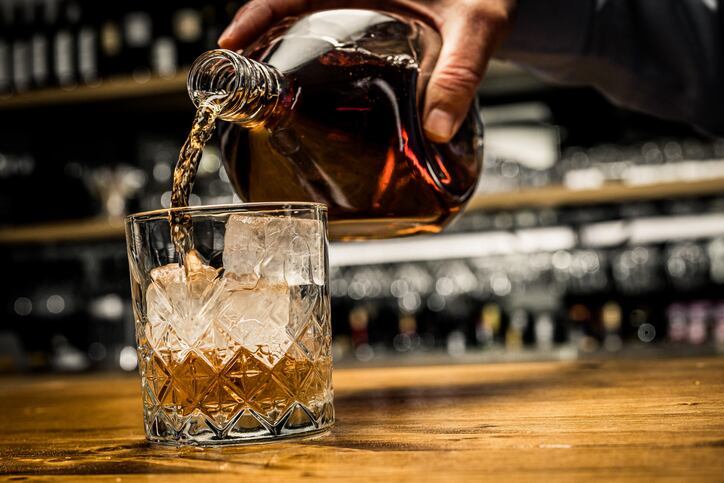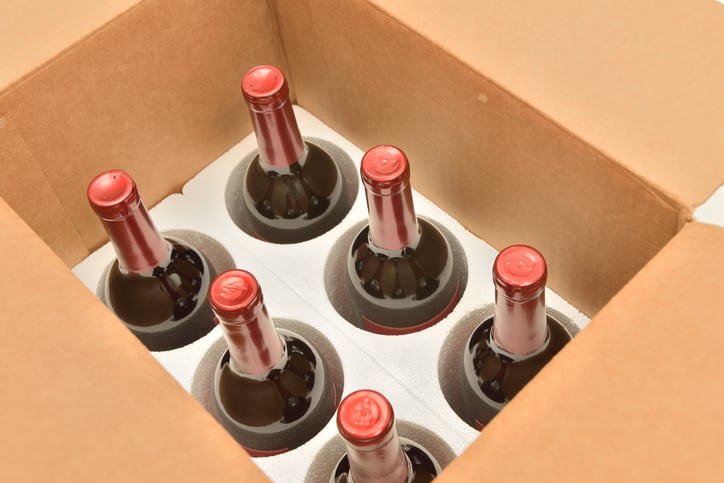The US imports some $10bn worth of spirits a year, according to data from the Distilled Spirits Council of the US. Top categories include tequila from Mexico, Canadian whisky and Scotch whisky.
And while last week’s tariffs announcements in ‘Liberation Day’ will hit spirits, it’s just the latest twist in a long-running saga.
Spirits have long been ‘collateral damage’ in unrelated disputes: but, like other categories, are now fully embroiled in Trump tariffs.
‘Toasts Not Tariffs’
The Toasts Not Tariffs Coalition consists of US trade associations representing the entire three-tier chain of the US beverage alcohol sector (covering producer, importer, wholesaler and retailer levels). Its members are united in opposition to US, EU and UK tariffs on beverage alcohol products.
The coalition of 47 associations was set up in 2021 to fight tariffs connected to steel and aluminum and Boeing/Airbus disputes – and continues to call for removal of all tariffs.
As for wine and beer, ‘Liberation Day’ is far from the end of the story (beer is trying to decipher a 25% tariff; wine still faces the threat of 200% tariffs yet to come).
While tariffs may have been set for some sectors, long-running disputes continue to hover over the category. The EU’s threat to enforce 50% retaliatory tariffs on American whiskey (as part of this year’s steel/aluminum tariffs) remains unresolved; as does the Airbus/Boeing dispute (US tariffs on distilled spirits and wine from the UK and EU are set to snap back in 2026 if there is no resolution).
For Toasts not Tariffs, the message remains the same today as in previous years: tariffs are not the answer.
“As part of the administration’s America First trade policy, we seek President Trump’s leadership to restore fair trade, resulting in reciprocal, tariff-free trade with our key spirits and wine trading partners,” said the coalition on Friday, responding to Trump’s ‘Liberation Day’.
“This will lead to an increase in US wine and spirits exports and investments, and US job growth.
“These trade disputes continue to unfairly harm our industry, including Canada’s action to take American-made wine and spirits products of their shelves. The removal of Canada’s tariffs and the return of these products to shelves across Canada is a critical step in restoring fair and reciprocal trade.
“The distilled spirits and wine sectors stand as a model of mutually beneficial trade, and the livelihoods of those working within them depend heavily on international trade. Most US wine exports go to countries with low or zero import duties. More than 85% of U.S. spirits exports go to countries that have eliminated tariffs, and nearly 100% of spirits imported are from those countries. Continued access to global markets creates jobs, supporting rural and urban communities.”
Furthermore, the impact of tariffs is widespread, says the coalition. It’s not just about the imports of tequila, vodka or scotch: but the wider impact.
“The tariffs and ongoing trade disputes pose significant threats to US hospitality businesses, including restaurants, bars, taverns, small package stores and grocery outlets, and their employees. Farmers growing crops on more than 1 million acres of farmland in the US, as well as the transportation, distribution, bottling, packaging, marketing, and finance sectors will also be negatively impacted.”
Tequila, Scotch, and more
By definition, many spirits coming into the US enjoy geographical protection and can’t be made elsewhere. That’s the case for tequila, Scotch whisky, Canadian whisky and American bourbon.
While other sectors can address tariffs by moving manufacturing to the US, this simply isn’t possible for many spirits categories.
“We urge President Trump to liberate the US spirits sector from these tariff disputes by negotiating deals that get us back to fair and reciprocal zero-for-zero tariffs for spirits products,” said Chris Swonger, president and CEO of the US’ Distilled Spirits Council in reaction to Liberation Day.
“Many spirits products are recognized as ‘distinctive products’ by the US and our trading partners and can only be made in their designated countries. As a result, the production of these spirits products, such as Bourbon, Tennessee Whiskey, Cognac, Scotch and Irish Whiskey, cannot simply be moved to another country or region.
“The US spirits sector has been the model of success for fair and reciprocal trade for decades. During the time that we had zero-for-zero tariffs with 51 countries, our industry flourished, benefitting US distillers, farmers and the wider hospitality industry.”
Tequila is by far the top import into the US: with this spirit, by definition, coming from Mexico - so this will be affected by tariffs on Mexican imports.
Other top imports include Scotch from the UK, set to be covered by the 10% base tariff on goods from the UK (Scotch whisky is one of the UK’s food and drink exports, and is particularly sought after in the US).
A spokesperson for the Scotch Whisky Association said: “The industry is disappointed that Scotch Whisky could be impacted by these tariffs. We welcome the intensive efforts by the UK government to reach a deal with the US administration, and we continue to support this measured and pragmatic approach towards a mutually beneficial resolution.”
Another top import is brandy from France: while vodka, Canadian whisky, gin (primarily from the UK) and rum are other significant imports.
Goods from Europe (such as brandy from France) will be hit by a 20% tariff on EU goods.
“spiritsEUROPE regrets that EU spirits will be impacted by these tariffs,” says spiritsEUROPE, which represents the European spirits industry. “Our sectors are highly integrated across the Atlantic and our shared trade in spirits supports many jobs on both sides, across manufacturing, distribution, farming, retail and hospitality.
“We want to ensure a return to an environment that supports continued growth for both EU and US producers. spiritsEUROPE welcomes the EU’s desire to reach a negotiated solution with the US and stands ready to contribute with proposals to enhance our sectors’ mutual success.”



